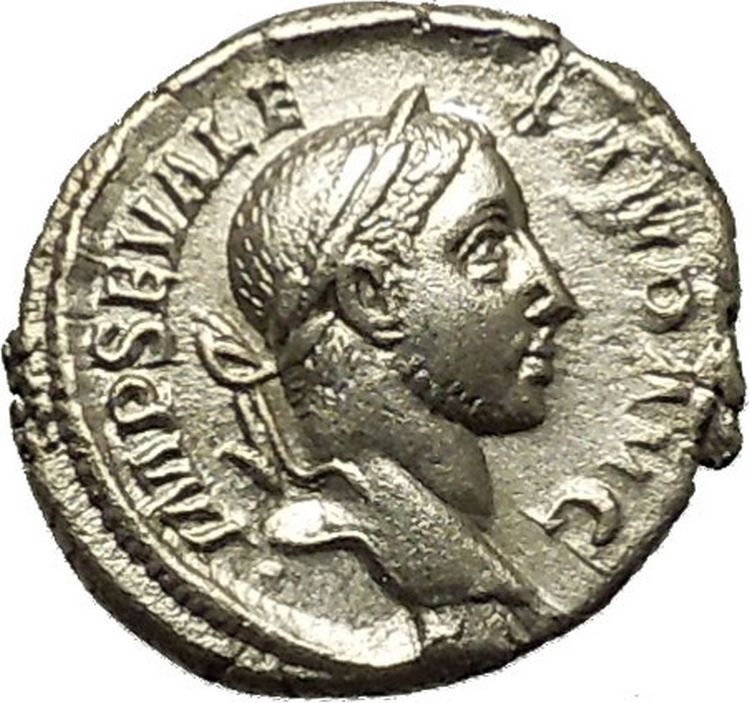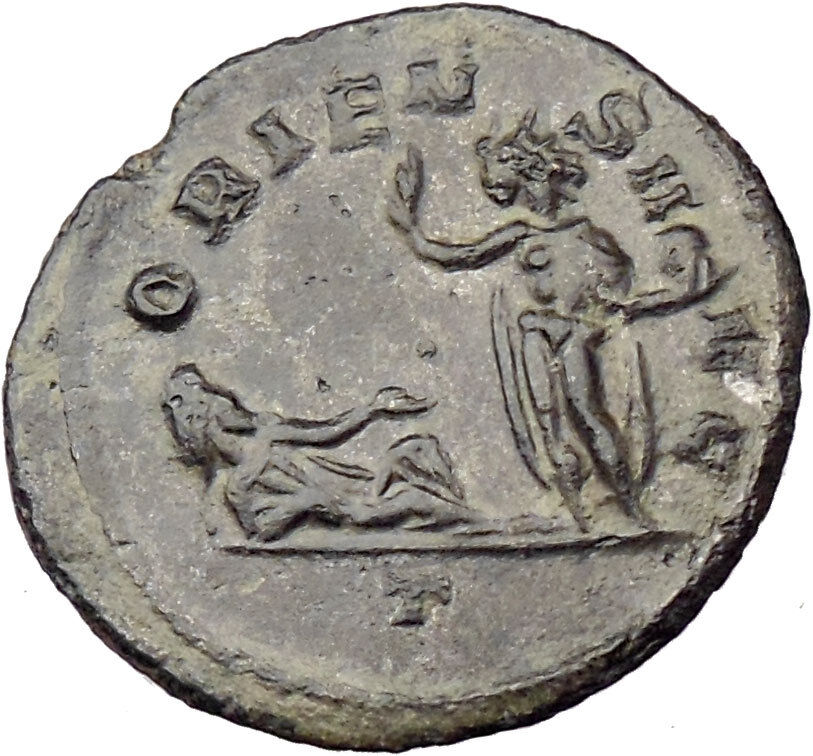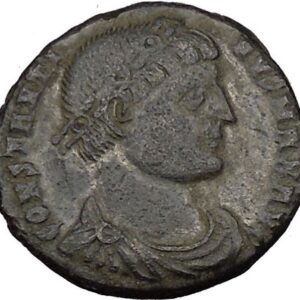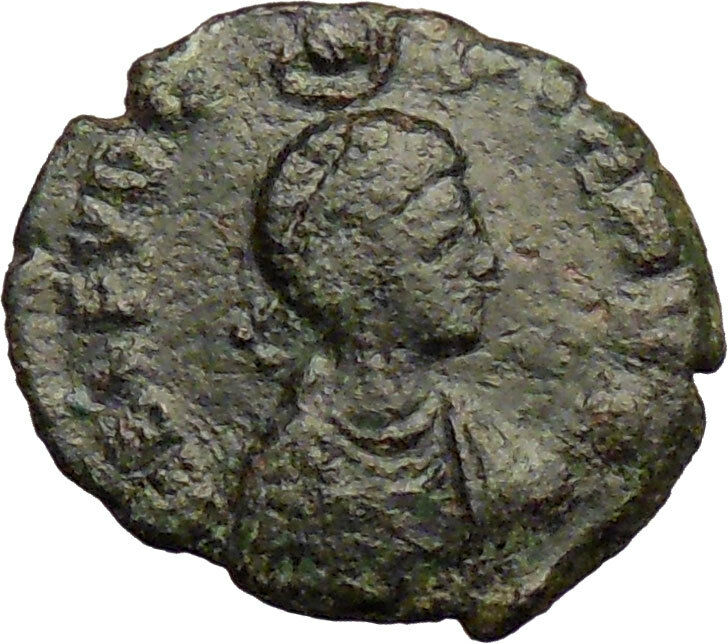|
Maximian – Roman Emperor: 285-305, 306-308 & 310 A.D. –
Bronze Antoninianus 22mm (2.78 grams) Struck at the mint of Cyzicus 295-296
A.D.
IMPCMAMAXIMIANVSPFAVG – Radiate, cuirassed bust right.
CONCORDIAMILITVM Exe: KЄ – Maximian standing right on left, receiving Victory on
globe from
Jupiter to right, holding scepter.
You are bidding on the exact
item pictured, provided with a Certificate of Authenticity and Lifetime
Guarantee of Authenticity.
In
Roman mythology
,
Jupiter
or
Jove was the
king of the gods
, and the god of
sky and
thunder
. He
is
 the equivalent of Zeus the equivalent of Zeus
in the
Greek pantheon
. He was called Iuppiter (or Diespiter)
Optimus Maximus (“Father God the Best and Greatest”). As the patron deity of
ancient
Rome
, he ruled over laws and social order. He was the chief god of the
Capitoline Triad
, with sister/wife
Juno
. Jupiter is also the father of the god
Mars
with Juno. Therefore, Jupiter is the grandfather of
Romulus and Remus
, the legendary founders of Rome. Jupiter was venerated in
ancient Roman religion
, and is still venerated in
Roman Neopaganism
. He is a son of
Saturn
, along with brothers
Neptune
and
Pluto
.
He is also the brother/husband of
Ceres
(daughter of Saturn and mother of
Proserpina
),
brother of Veritas
(daughter of Saturn), and father of
Mercury
.
Marcus Aurelius Valerius Maximianus Herculius (c. 250 – c. July 310),
commonly referred to as Maximian, was
Caesar
(junior
Roman
Emperor
) from July 285
and
Augustus
(senior Roman Emperor) from April 1, 286
to

May 1, 305.
He shared the latter title with his co-emperor and superior,
Diocletian
,
whose political brain complemented Maximian’s military brawn. Maximian
established his residence at
Trier
but spent
most of his time on campaign. In the late summer of 285, he suppressed rebels in
Gaul known as the
Bagaudae
.
From 285 to 288, he fought against Germanic tribes along the Rhine frontier.
Together with Diocletian, he ran a
scorched earth
campaign deep into the territory of the
Alamanni
tribes in 288, temporarily relieving the Rhenish provinces from the threat of
Germanic invasion.
The man he appointed to police the
Channel
shores,
Carausius
,
rebelled in 286, causing the secession of Britain and northwestern Gaul.
Maximian failed to oust Carausius, and his invasion fleet was destroyed by
storms in 289 or 290. Maximan’s subordinate,
Constantius
, campaigned against Carausius’ successor,
Allectus
,
while Maximian held the Rhenish frontier. The rebel leader was ousted in 296,
and Maximian moved south to combat
Moorish
pirates
in Iberia and
Berber
incursions in
Mauretania
.
When these campaigns concluded in 298, he departed for Italy, where he lived in
comfort until 305. At Diocletian’s behest, Maximian abdicated on May 1, 305,
gave the Augustan office to Constantius, and retired to southern Italy.
In late 306, Maximian took the title of Augustus again and aided his son
Maxentius
‘
rebellion in Italy. In April 307, he attempted to depose his son, but failed and
fled to the court of Constantius’ successor,
Constantine
, in Trier. At the Council of
Carnuntum
in November 308, Diocletian and his successor,
Galerius
,
forced Maximian to renounce his imperial claim again. In early 310, Maximian
attempted to seize Constantine’s title while the emperor was on campaign on the
Rhine. Few supported him, and he was captured by Constantine in Marseille.
Maximian committed suicide in the summer of 310 on Constantine’s orders. During
Constantine’s war with Maxentius, Maximian’s image was purged from all public
places. However, after Constantine ousted and killed Maxentius, Maximian’s image
was rehabilitated, and he was deified.
One of the members of the Tetrarchy, Maximianus had a
convoluted reign that started when he and Diocletian began ruling as equals in
286. Maximianus was in charge of the western portion of the empire along with
Constantius I, his junior in command, while Diocletian and Galerius ruled the
eastern half. After several years of putting down revolts and usurpers, both he
and Diocletian abdicated to let their Caesars take their place in 306. However,
this peaceful arrangement would come to an end soon when Maximianus’s son
Maxentius initiated a revolt of his own. Seeing that it would lend an air of
legitimacy to his claims, Maxentius requested his father to return to assume the
high post along with him. Maximianus, although possibly reluctant initially,
took up his son’s offer. He had abdicated less than voluntarily under
Diocletian’s scheme and now he was caught up in the fervor of Maxentius’s drive
to become sole ruler. In time, Maxentius met with failure after he lost several
key battles to Constantine and Maximianus found himself in the awkward position
of being an emperor with no rightful claim nor army willing to proceed with his
agenda. Increasingly isolated, Constantine cornered him and he was either
executed or committed suicide.
|





 the equivalent of Zeus
the equivalent of Zeus



